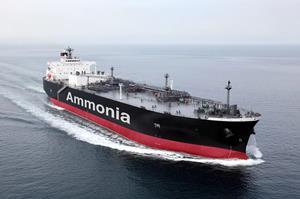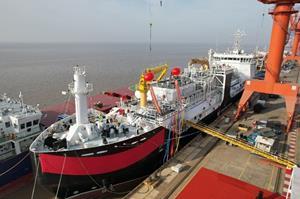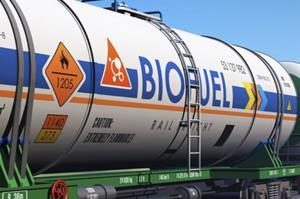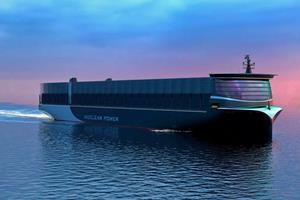- News
- Subscribe

Get full access to The Motorship content
Including the digital magazine, full news archive, podcasts, webinars and articles on innovations and current trends in the shipping industry.
- Expert analysis and comment
- Unlimited access to in-depth articles and premium content
- Full access to all our online archive
Alternatively REGISTER for website access and sign up for email alerts
- Special Reports
Ammmonia
Methanol
LNG
BioFuel & Clean Diesel
Nuclear





Using an abundant, if toxic, resource to power the maritime fleet. A mature future fuel already in use - but will it become dominant? LNG is currently the most popular lower carbon fuel, but with bio and e-LNG it could move beyond its current transition fuel status supported by extensive existing infrastructure. Numerous NGOs protested against the IMO earlier this year putting biofuels in its Global Fuel Standard, but the “fuel versus food” debate seems to have been solved by deriving fuels from waste. Technically the cleanest possible fuel source available to the maritime world and one that has the longest history, dating back to the 1950s. Why is it not in common, non-military use? Read More Read More Read More Read More Read More
- Industry Database
- Events

Propulsion & Future Fuels Conference 2025
The Motorship’s Propulsion & Future Fuels is the leading international conference on powering shipping’s emissions-cutting ambitions.
The 2025 Conference will take place from 25th - 27th November in Hamburg, Germany and will offer a meeting place to learn, discuss and knowledge-share the latest developments in efficient power and propulsion technology plus alternative low flashpoint and low carbon fuels.
Click here for more information
Bureau Veritas on navigating fuels and regulation

Julien Boulland, Bureau Veritas’s head of sustainable shipping, outlined a multi-faceted approach for achieving emissions reductions, highlighting the role of operational improvements, the rise of alternative fuels, and the complexities of emerging regulations.
According to Boulland, recent data shows positive trends: “For the first year, we started to see a reduction in fuel consumption and also emissions, greenhouse gas emissions, when you multiply fuel that occur by the corresponding emission factor.” This reduction, he notes, comes even as the global shipping fleet has grown and travel distances have increased slightly.
Rather than a sudden shift to new fuels, Boulland credits this progress to strategies on operational excellence like slow steaming, efficient weather routing, and just-in-time arrival, which have immediate impacts on fuel consumption and emissions. “We think that an important element is operational excellence,” he emphasised. “Slow steaming, probably, most probably, because it has a huge impact on fuel consumption reduction.” He further noted that fuel shifts have played a marginal role, with LNG uptake progressing slowly but offering limited CO2 reductions.
Continue this article…
Already subscribed? SIGN IN now

Register for a FREE one-month trial to continue this article
Want to read more before deciding on a subscription? It only takes a minute to sign up for a free account and you’ll get to enjoy:
- Weekly newsletters providing valuable news and information on the shipping sector
- Full access to our news archive
- Live and archived webinars, podcasts and videos
- Articles on innovations and current trends in the shipping industry
- Our extensive archive of data, research and intelligence
Get more free content sign up today
Ready to subscribe? Choose from one of our subscription packages for unlimited access!

